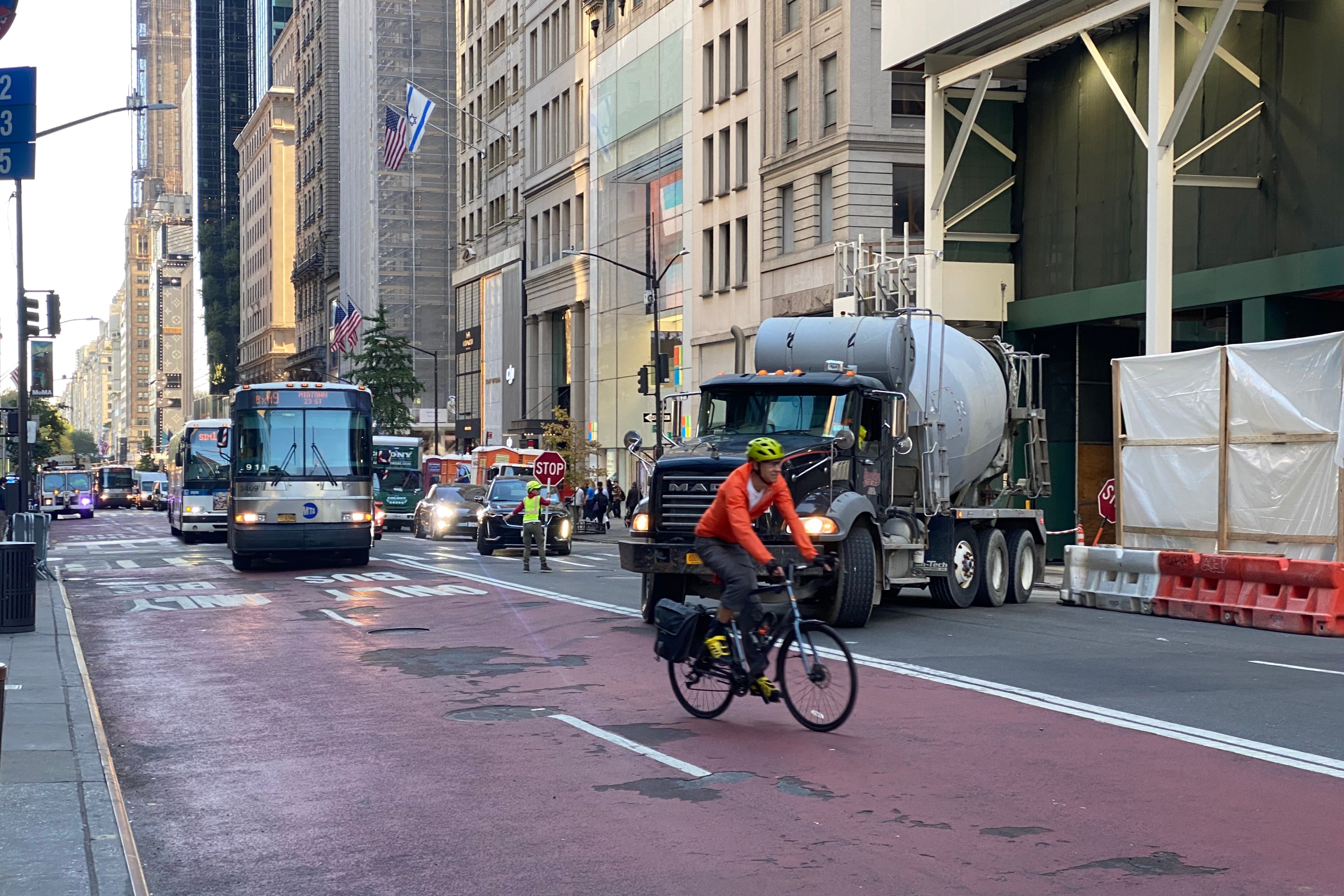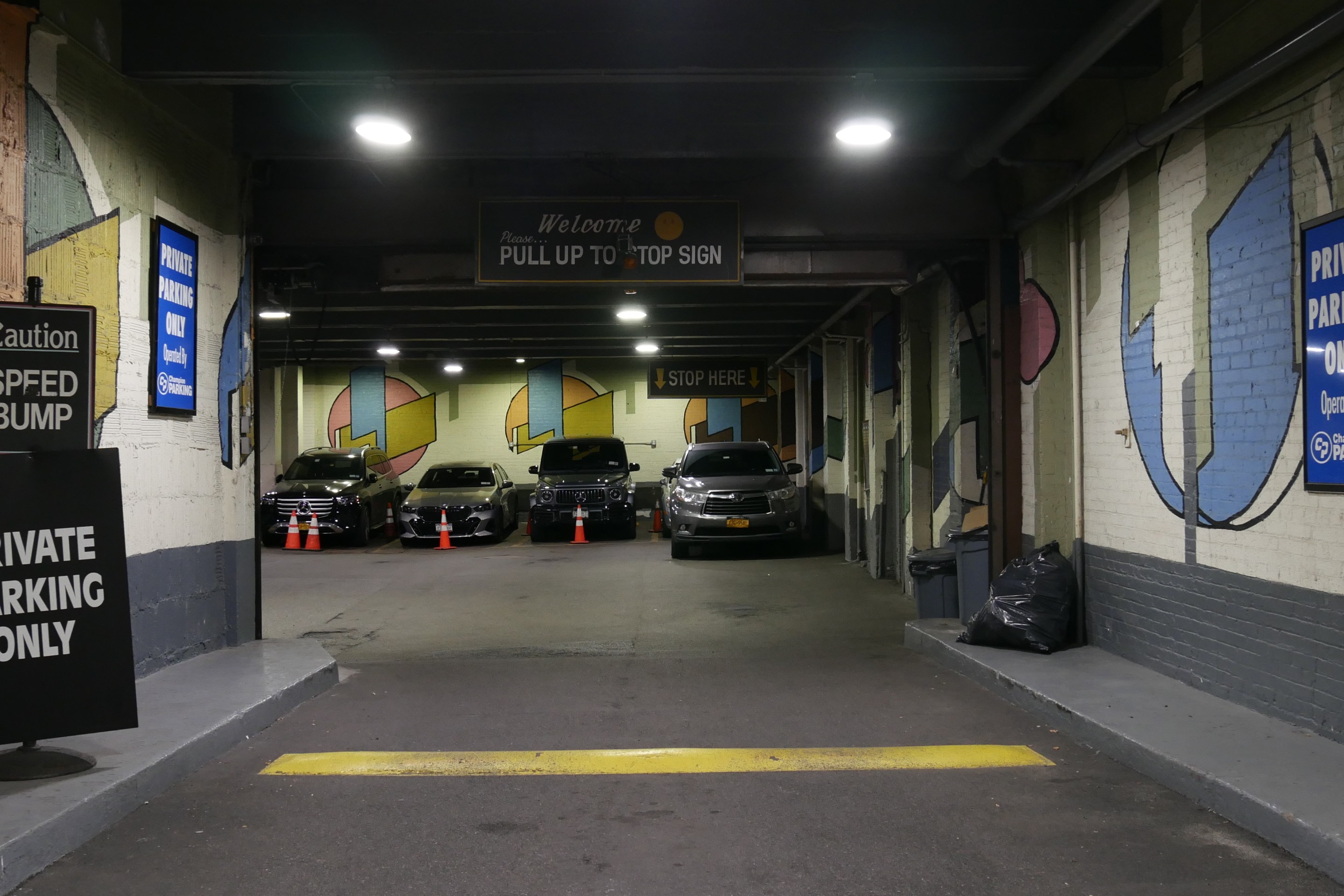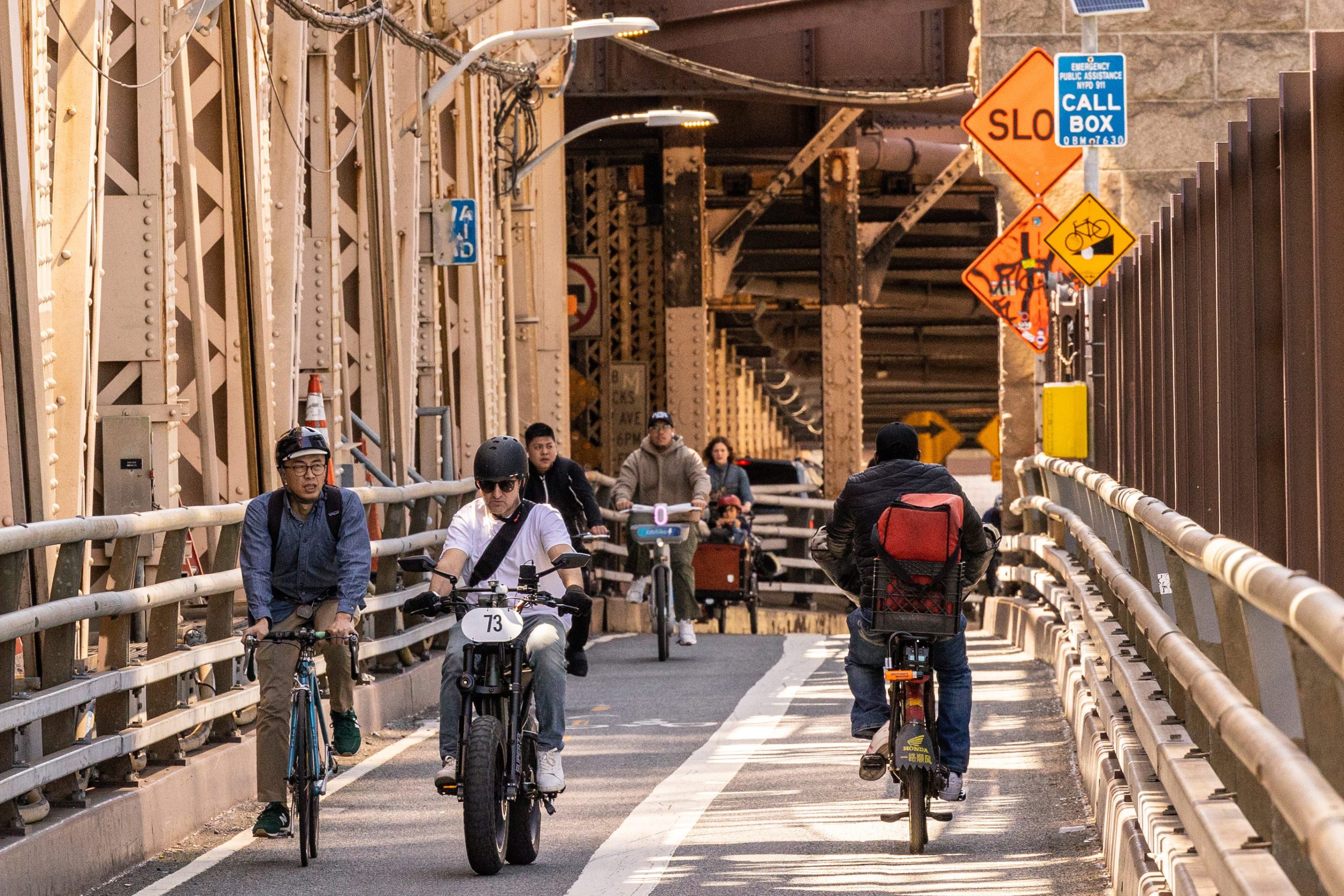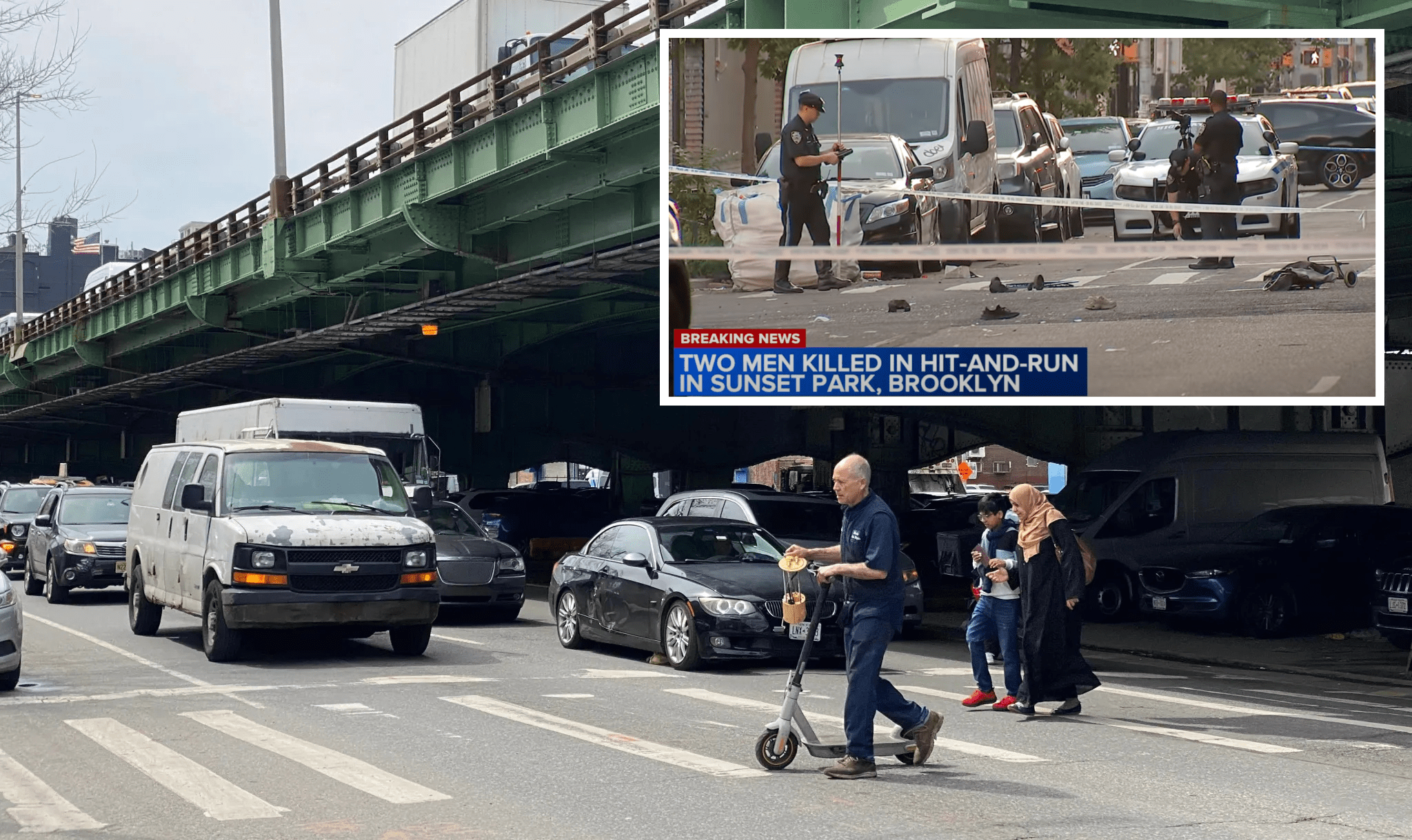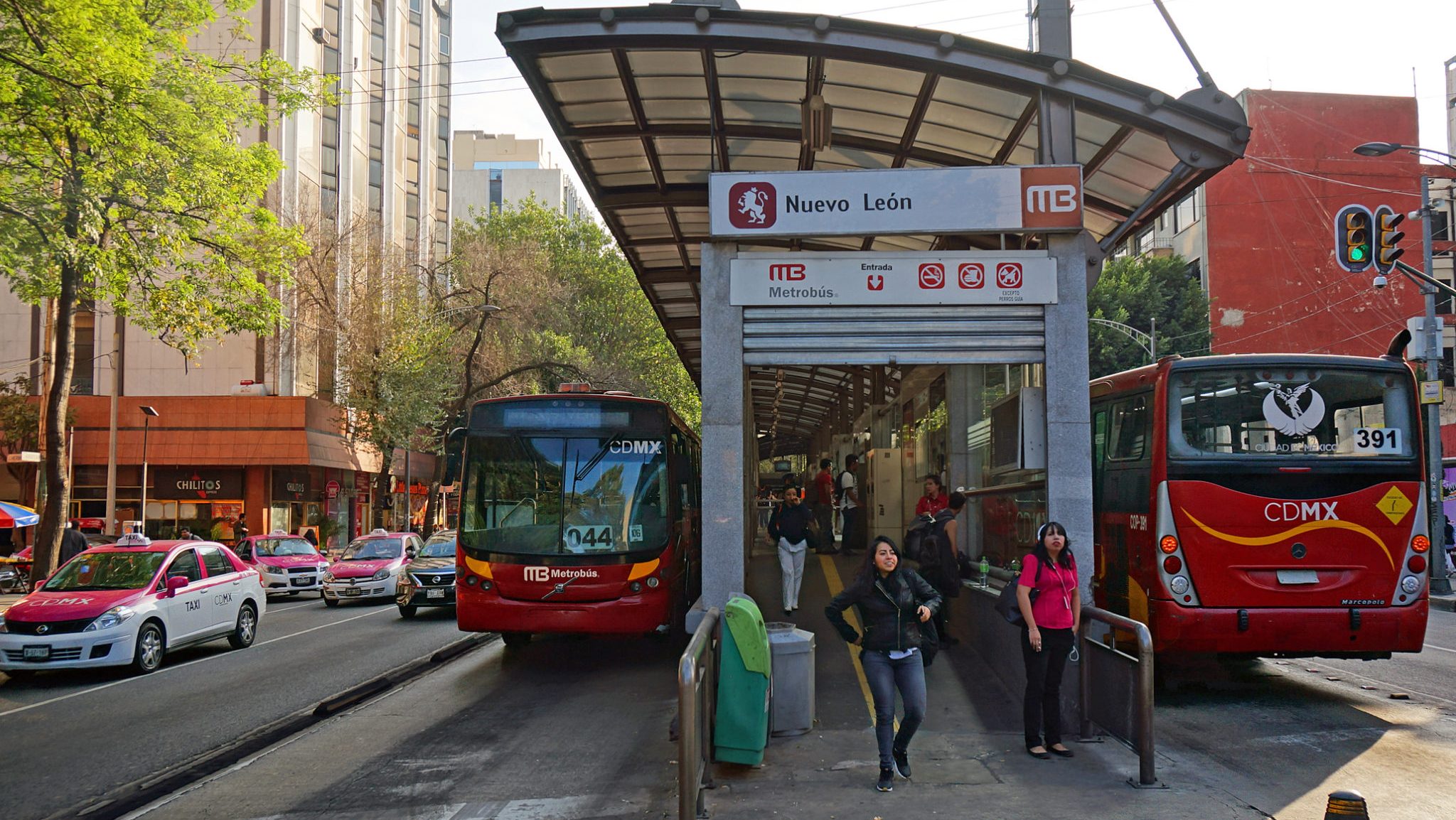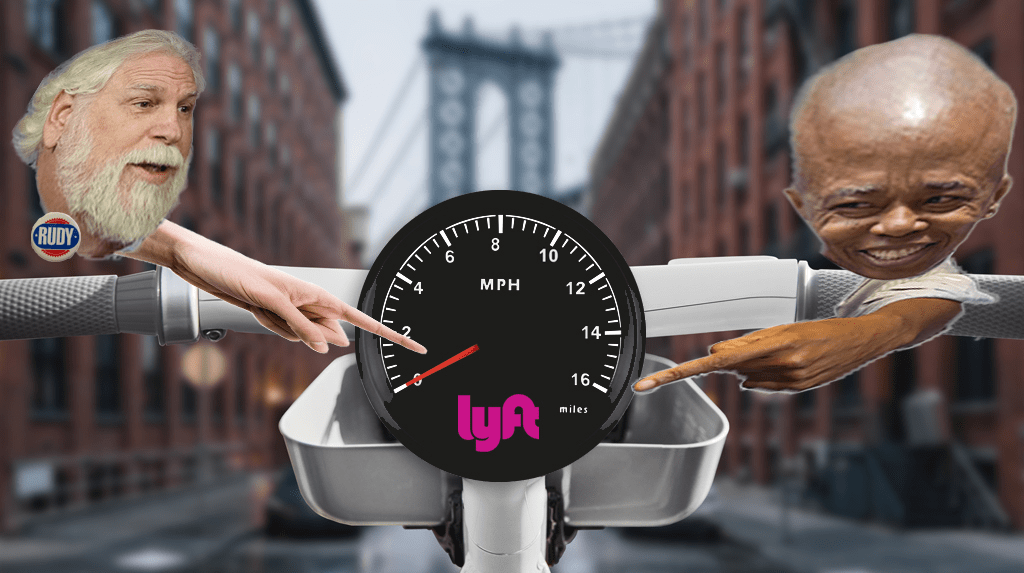
"People are addicted to their cars," said John Street, the Mayor of
Philadelphia, at a panel on transport yesterday during the C40 Large
Cities Climate Summit. He was identifying what he saw as the major
challenge for cities striving to make their transport systems more
environmentally sustainable.
That remark prompted a comment later from Jim Press, president of
Toyota North America, who was in the audience. "It's not an addiction
to cars, which makes me feel a little like a dealer," he said, to
general laughter. "It's an addiction to personal mobility." Press went
on to say he thought part of the solution to the problem of pollution
in cities could be a car-sharing scheme (with Toyota supplying the
cars, of course) in which people could take mass transit to a city
center, then pick up a car to get to their precise destination.
Street, despite his earlier anti-car rhetoric, seemed suddenly interested. And no
one in the room appeared to think there was anything odd about the idea
of reducing pollution by giving people new opportunities to drive cars.
The exchange was typical in a discussion that focused on alternative
fuels for existing and future motor vehicles, or on different types of
motor vehicles, rather than on the reduction of the vehicles
themselves. Certainly, mass transit (and getting more funding for it
from central governments) featured heavily among the strategies touted
by the municipal leaders on the panel, and all of them acknowledged
personal cars as the biggest villain. But they seemed reluctant to press the idea that people could ever be convinced to give up their autos.
Representing the promise of better living through better fuels was
panelist Ken Fisher (above, left), a senior vice president from Shell
Oil. He acknowledged the deficiencies of ethanol and other fuel
alternatives that require huge swathes of land and plenty of energy to
produce, but he held out hope for "biofuel from waste, not food," like
cellulose ethanol.
Apirak Kosayodhin (above, right), the Governor of Bangkok, bemoaned
the difficulty of getting motorists to relinquish road space for Bus
Rapid Transit in his city of legendary traffic jams -- where car
ownership continues to soar, and where significant pollution reductions
have been achieved only by focusing on means other than limiting vehicular traffic.
Only Luis Eduardo Garzán, the mayor of Bogotá, Colombia (where former mayor Enrique Penalosa promoted radical cyclist- and pedestrian-friendly measures),
briefly mentioned bike lanes. Other than that, the conversation had
little to do with encouraging entirely pollution-free forms of
transportation -- or shall we call it "personal mobility"? -- such as
bicycling and walking.
At this rate, that addiction is going to be hard to kick.
